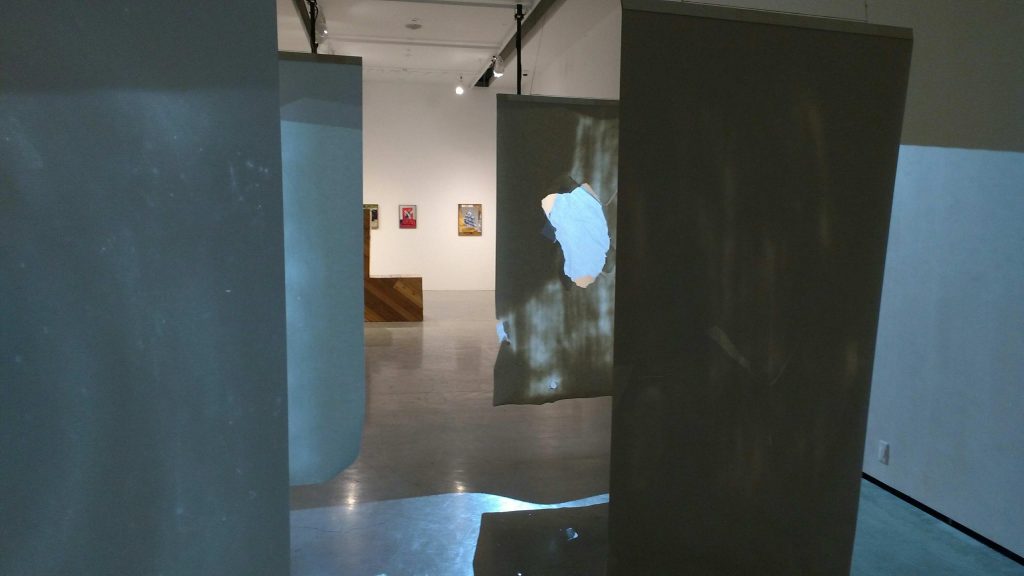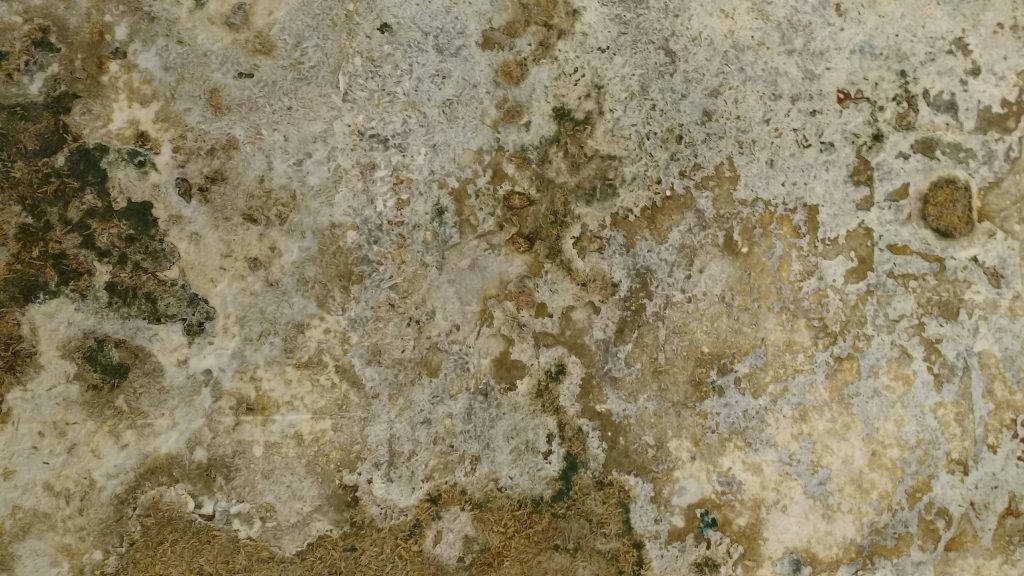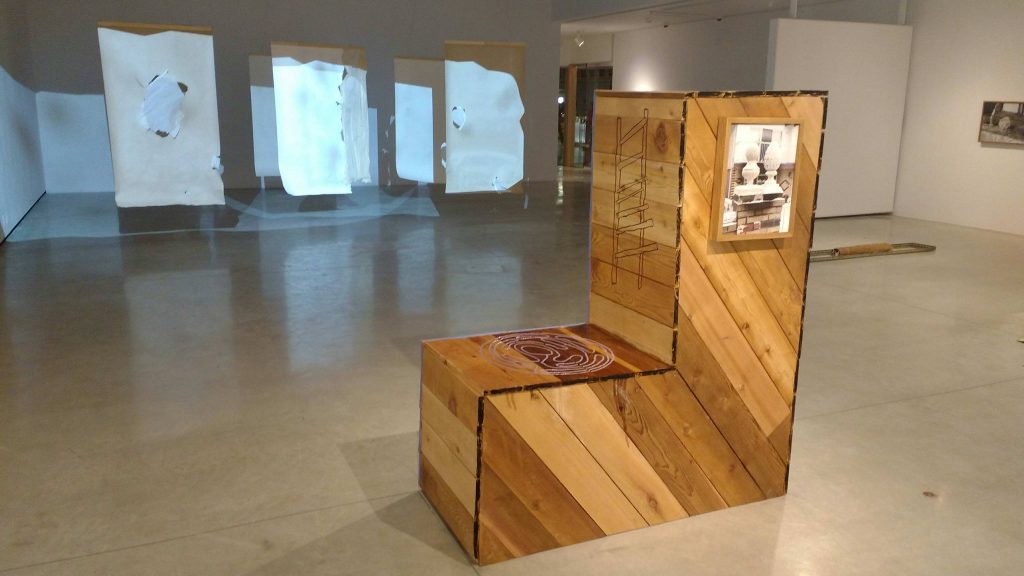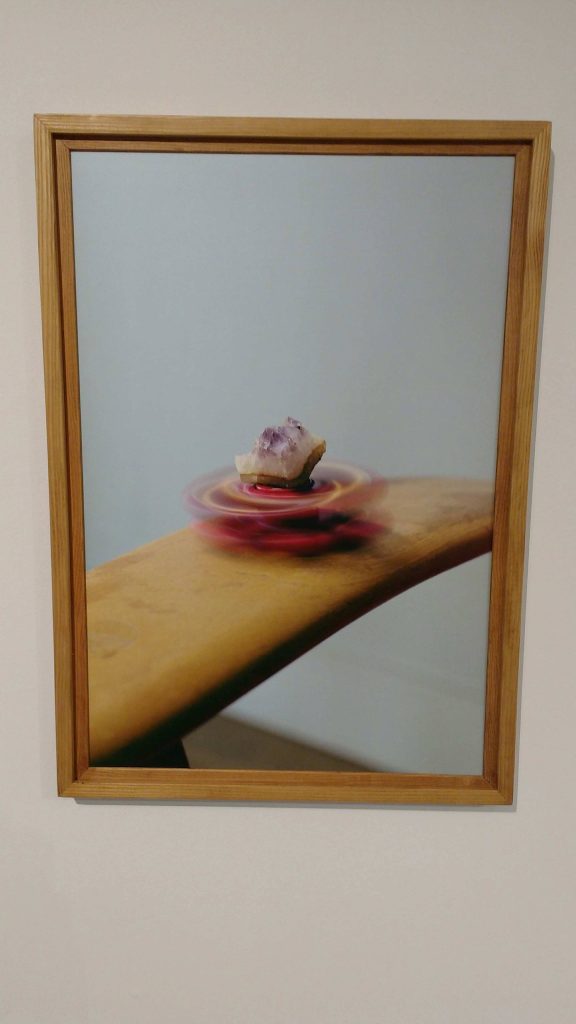By: Paige Smith
A weirdly wonderful assortment of works was presented at this year’s first-year Master of Fine Arts candidates’ spring showcase, Gallimaufry. Four artists from a range of disciplines attempted to expand their viewers’ understanding of art.
Entering the Audain Gallery at SFU Woodward’s, I’m immediately jostled by the overwhelming soundscape of Minahil Bukhari’s After Aftermath, a video installation where abstract images of crumpled paper are projected upon large sheets of hanging fabric and papers.

The projected images first hit the sheets nearest them, and then slip around the edges and through large ripped holes in the sheets, allowing the light to hit every layer of them. The holes are messily patched with transparent papers, never allowing the stressful images of the crumpling to escape any of the sheets. Walking around and through the work allows the viewer to experience how the light affects the sheets in surprising ways.
The second work one might notice is Jennifer Anderson’s Instrumental Alchemy, which consists of both viewer experimentation and Anderson’s performance of playing her handmade instruments. Five different bowls sit upon a table, some glass and some ceramic, each with a wooden rectangle strung with piano wires placed atop them.
Guests are encouraged to try plucking the wires of these bowl instruments, along with piano wires strung into an oddly shaped wooden piece. When plucked, the wooden piece echoes back, striking a curiosity for further exploration. The handmade aesthetic of the pieces allows for a playful interaction between the viewer and the instruments, where each pluck can bring new questions.
Anderson’s performance utilized electronic looping to create a cacophony of melodies from the vibrations of both the plucked wires and the bowls, now filled with water. Slamming the wooden rectangles upon the bowls, donning some sort of vibration-detecting glove that was electronically wired into her computer, and splashing pots of water upon her instruments, Anderson never failed to incite new imaginings of what an instrument can look like, or how one should play an instrument.

Stumbling deeper into the gallery, guests encounter small fields of fungi-filled rugs, hanging artworks, and plastic bags. Amy Wilson’s Living Objects melds human structures made of metal frames or plastic containers with the organic construction of mycelium from the fungi. The works seem to ask us to question human and non-human forms of making, and how the two interact together to create objects. The rugs were of particular interest, showcasing the beautiful textures and colours that mycelium can create.

The final artist on display at the gallery was Graeme Wahn, with his work Wrap Around Patio, which asks viewers to encounter the many wooden-framed photographs hanging on the walls from the vantage point of an L-shaped bench. The bench itself has patterns and sketches scratched into it, and the photographs depict objects ranging from bright red scissors to stacks of Kokanee playing card pyramids.
The photographs seem unconnected other than their object-oriented aesthetics, but with the vantage point of the wooden bench, Wahn challenges viewers to question how the material structures surrounding the images affect the images’ meanings.
The showcase was definitely a gallimaufry, with all the works mixing together to create a wonderfully odd collection of works all aimed at evoking curiosity in their viewers.





